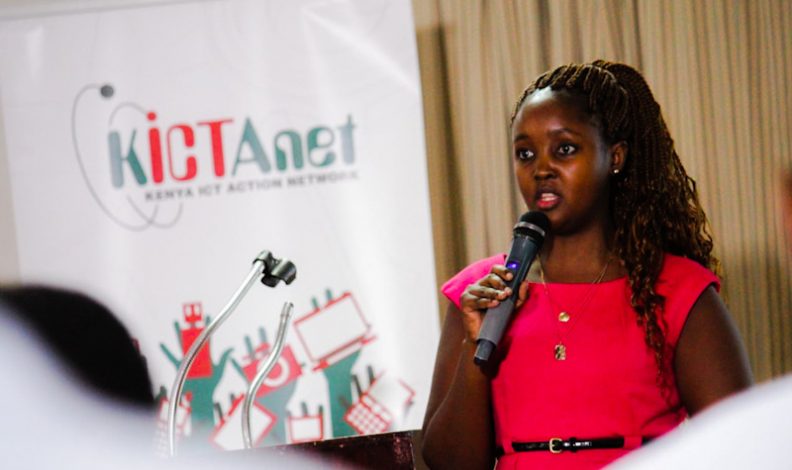- The Child Online Protection (COP) Initiative is a multi-stakeholder network launched by the ITU to promote awareness of child safety in the online world.
The International Telecommunication Union (ITU) has launched 2020 guidelines on Child Online Protection (COP) on how to contribute to the development of a safe and empowering online environment for children.
The guidelines provide a set of concrete recommendations for children, parents and educators, industry and policy-makers serving as a blueprint that can be adapted to national or local customs and laws.
“The question of how to ensure children’s online safety in the age of COVID-19 is now more pressing than ever before,” said ITU Secretary-General Houlin Zhao. “ITU’s new Guidelines on Child Online Protection are a very timely tool to safeguard the well-being, integrity, and safety of our children, our most precious gift.”
The new guidelines were re-designed from the ground up to reflect the significant shifts in the digital landscape in which children find themselves, such as the Internet of Things, connected toys, online gaming, robotics, machine learning and artificial intelligence.
“The Guidelines also aim at supporting children and their entourage by informing and engaging children, raising awareness on interned safety-related issues, and supporting the development of digital skills and digital literacy.”
“The behavior of offenders and criminal networks is constantly evolving, as seen during the COVID-19 pandemic, with offenders taking advantage of the new reality of many children being online far more than usual. It is therefore imperative that child protection systems evolve as fast or even faster,” said Dr. Najat Maalla M’jid, United Nations Special Representative of the Secretary-General on Violence Against Children.
Kenya’s Directorate of Criminal Investigations (DCI) in June noted an increase and disturbing trend on offenses against children, during this Covid-19 Pandemic.
According to the DCI, the perpetrators of these offences have taken advantage of online learning in schools and learning institutions where children are undergoing zoom classes and other digital learning programs to lure children for exploitation.
“In four such reported cases, the predators sent children messages in their inboxes complimenting their looks then after gaining their trust, went ahead to ask them for their nude images among other despicable acts,” said the DCI.
The Ministry of Information and Communications has already directed the Communication Authority and mobile service providers to establish measures to protect children against bad online content.
In 2019, Kenya established its first cyber unit to fight child sex abuse. However, as of March 2020, 11 cases are still pending in court to heard and determined.
READ
- Safer Internet Day: Facebook Inc Top 10 Safety Tips for Parents
- Google Launches $1 million Be Internet Awesome Campaign in Kenya, Nigeria and South Africa
The 2020 Guidelines consist of four parts tailored to key audiences: children, parents and educators, industry and policymakers.
The guidelines for children are available in a child-friendly format and they consist of three resources: a story book for children under nine, a workbook for children aged 9 to 11, and a social media campaign and microsite for children and young people aged 12 to 18. These resources help children learn how to manage risks online, while at the same time empowering them to exercise their rights online and engage in opportunities that the Internet presents to them.
The guidelines for parents and educators serve as a practical tool to help them to effectively support children and young people’s interaction with the online world, to sensitize families to the potential risks and threats and help cultivate a healthy and empowering online environment at home and in the classroom. They emphasize the importance of open communication and ongoing dialogue with children, to create a safe space where young users feel empowered to raise concerns.
The guidelines for industry aim at supporting industry players in the development of their internal COP policies. They highlight key areas, such as integrating child rights considerations into all appropriate corporate policies and management processes; developing standard processes to handle child sexual abuse material; creating a safer and age-appropriate online environment; educating children, carers and educators about children’s safety and the responsible use of information and communication technologies (ICTs); and promoting digital technology as a mode for increasing civic engagement.
The guidelines for policymakers serve as a solid foundation on which to develop inclusive, multi-stakeholder national strategies, through open consultations and dialogues with children, to develop better-targeted measures and more efficient actions. ITU and its partners sought to create a highly usable, flexible and adaptable framework firmly based on international standards and shared goals, particularly the Convention on the Rights of the Child and the United Nations Sustainable Development Goals.
The 2020 COP Guidelines have been co-authored by ITU and a working group of contributing authors from leading institutions active in the ICT sector, as well as in child (online) protection issues.
Additional reporting from ITU.





1 Comment
Pingback: ‘Spot It! Stop It!” Kenya's Campaign to End Violence Against Children